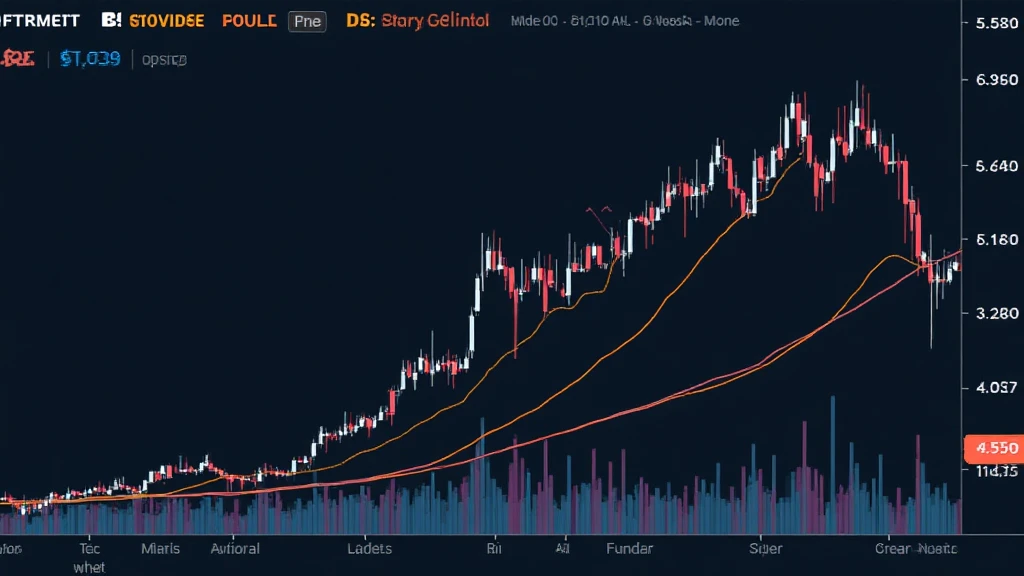Introduction
In 2024, the crypto market has seen a dramatic surge characterized by an influx of institutional investments, with hedge funds playing a pivotal role. Reports indicate that over $4.1 billion was lost to DeFi hacks last year, prompting a pressing need for more robust investment strategies that can withstand volatility. With Bitcoin hedge fund strategies evolving, investors are looking for effective ways to maximize returns and mitigate risks.
This article explores various Bitcoin hedge fund strategies tailored for both seasoned investors and newcomers navigating this complex market landscape. Let’s decipher how these strategies can help you optimize your investment portfolio.
The Role of Hedge Funds in Bitcoin Investment
Hedge funds have become increasingly relevant in the cryptocurrency ecosystem, offering diverse approaches to Bitcoin investment that traditional investors may overlook. These funds are frequently characterized by their:

- High liquidity: Bitcoin hedge funds provide investors the flexibility to enter and exit positions with relative ease.
- Diverse strategies: Unlike typical long-only funds, hedge funds employ a range of strategies, from long/short equity to arbitrage, contributing to risk management.
- Access to exclusive opportunities: Many hedge funds have established connections within the crypto space, allowing them access to emerging projects that individual investors may not find accessible.
Common Bitcoin Hedge Fund Strategies
When it comes to Bitcoin hedge funds, various strategies can be employed. Below, we’ll delve into some prevalent methods:
1. Long/Short Strategies
A long/short strategy involves buying Bitcoin (long position) while simultaneously shorting other assets. This approach allows funds to capitalize on the rising prices of Bitcoin while hedging against potential downturns in the market.
For instance, if a Bitcoin price rally is evident but an associated Ethereum decline is anticipated, a hedge fund may go long on Bitcoin while shorting Ethereum to offset potential losses.
2. Arbitrage Opportunities
Arbitrage strategies leverage price discrepancies across different exchanges. When Bitcoin is priced lower on one exchange compared to another, hedge funds can purchase at a low price and sell at a higher price, pocketing the difference.
“The key,” says noted crypto analyst Pham Minh Khai, “is to ensure that transaction costs do not outweigh the profit.” Data from CoinMarketCap shows that the average arbitrage yield can exceed 1% over high-volatility periods.
3. Algorithmic Trading
Algorithmic trading employs sophisticated algorithms to execute trades based on pre-determined criteria. These platforms can analyze market sentiment and execute trades faster than human traders, capitalizing on price fluctuations in real-time.
For example, hedge funds may utilize algorithms to execute buy orders when Bitcoin dips below a certain price, ensuring that they acquire assets at optimal rates.
4. Fund of Funds Approach
This approach involves investing in other hedge funds that specialize in cryptocurrency, thereby diversifying risk. A fund of funds strategy reduces individual exposure by spreading investments across several hedge funds while gaining access to a wide range of investment strategies.
The benefit lies in the ability to leverage the expertise of various fund managers who focus specifically on niche areas within crypto investment.
5. Market-Making
Market-making entails providing liquidity to the market by continuously buying and selling Bitcoin at different prices. These hedge funds earn a profit from the spread between buy and sell orders, contributing to a more stable market.
In 2022, market makers represented over 30% of Bitcoin trading volume on major exchanges, showcasing their impact on market liquidity.
Mitigating Risks with Bitcoin Hedge Fund Strategies
The volatility of Bitcoin presents unique challenges for hedge funds. As such, risk management is a critical element that these entities must address. Key methods include:
- Diversification: A well-diversified portfolio across different cryptocurrencies can reduce risk exposure.
- Stop-loss Orders: Implementing stop-loss orders helps mitigate potential losses by automatically selling Bitcoin if its price drops below a set threshold.
- Regular Portfolio Reassessment: Continuous evaluation of the investment portfolio allows hedge funds to adjust their strategies in response to market changes.
The Vietnamese Crypto Market Landscape
As of 2024, Vietnam has become a burgeoning hub for cryptocurrency adoption. The country has recorded a 200% year-on-year growth rate in crypto users, making it essential for hedge funds to adapt their strategies for this vibrant market.
Investors in Vietnam are increasingly drawn to Bitcoin hedge funds due to the potential for higher returns amidst regulatory complexities. Navigating these regulations is crucial for successful investment planning.
Case Studies of Successful Bitcoin Hedge Fund Strategies
Looking at successful case studies can provide invaluable insights into the effectiveness of Bitcoin hedge fund strategies.
1. Pantera Capital
Pantera Capital, one of the first Bitcoin hedge funds, has employed a mix of long/short equity and arbitrage strategies to achieve remarkable returns since its inception in 2013. Their strategic foresight has allowed investors to benefit from Bitcoin’s monumental growth.
2. Grayscale Bitcoin Trust
Grayscale provides investors a method to gain exposure to Bitcoin through traditional investment vehicles. Their trust trades at a premium, allowing investors to capitalize on Bitcoin price movements without the complexities of managing individual assets.
Conclusion
Employing Bitcoin hedge fund strategies can provide significant advantages for investors navigating the crypto landscape. As the decentralized finance market continues to grow, understanding these strategies becomes imperative for those looking to maximize their investments while mitigating risks. By leveraging the expertise of hedge funds and employing appropriate strategies, investors can navigate the complexities of the cryptocurrency market confidently.
Remember: Always perform due diligence and consult financial advisors to tailor investment strategies that align with your financial goals.
For further information on cryptocurrency investments, visit mycryptodictionary.





